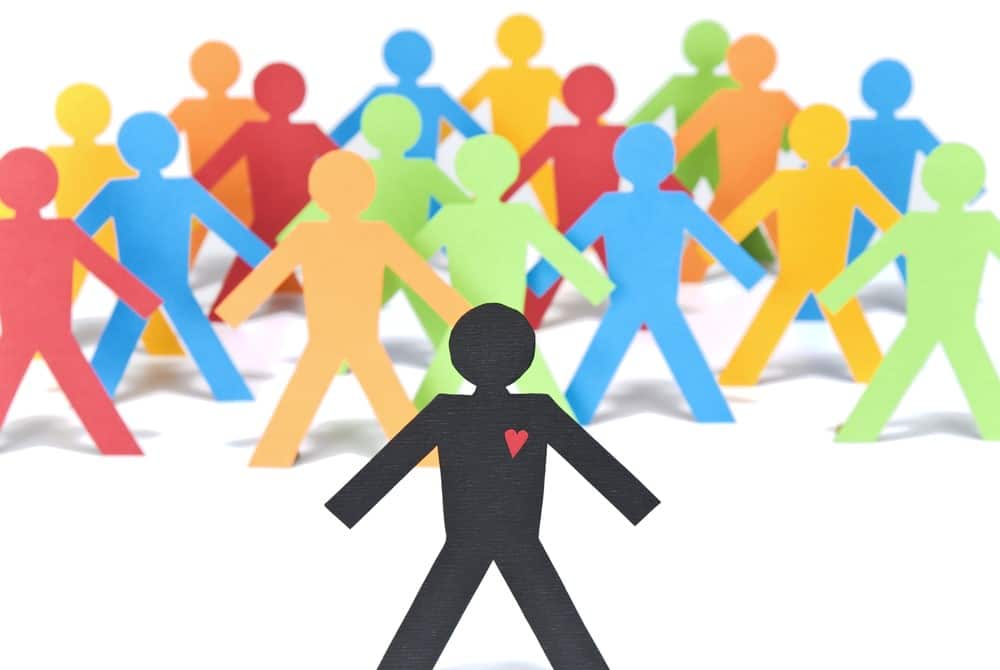Does A Happy Man Cheat?

There’s an old, intriguing question that, like a piece of gum stuck to the bottom of your shoe, seems to follow us around in life, trailing a string of broken hearts and tarnished trust along its path. The question is simple, yet somehow profoundly complex: does a happy man cheat?
Before I dive headfirst into this conundrum, allow me to introduce myself. I am an experienced dating coach, and I’ve spent countless hours reading, analyzing, and understanding human psychology, emotions, relationships, and the intricate tapestry of decisions that constitute our everyday lives. So, let’s dive in, and allow me to illuminate the dimly lit corners of this question that so often sparks heated debates in social gatherings and fuels lengthy discussions in academic circles.
It’s a question as old as time, one that subtly insinuates a direct correlation between a man’s state of happiness and his likelihood to be unfaithful. But, is it that straightforward? Could one’s state of happiness — or the lack thereof — really be the pendulum that determines the fate of one’s fidelity? This might seem to oversimplify the intricate and convoluted labyrinth that constitutes human behavior.
You see, humans are a bundle of emotions, decisions, experiences, and influences. Happiness, much like our very existence, is multifaceted and subjective. It ebbs and flows, it’s not a constant state but a shifting landscape colored by our individual experiences and interpretations. Can we then boldly claim that a man in the throes of happiness would never dare stray from his path of fidelity? Or are we, as humans, forever teetering on the edge of a precipice, our actions dictated not by our emotional state, but by a myriad of unseen forces and circumstances?
Throughout the length and breadth of this discussion, I promise to dissect, analyze, and explore every facet of this perplexing question: does a happy man cheat? By threading together empirical evidence, academic research, and sociological observations, I hope to paint a clearer picture of this often oversimplified and misconstrued concept.
In this exploration, expect a judicious blend of detailed research, expert analysis, and thoughtful insight. I will dive into the heart of what defines happiness and its interconnection with fidelity. I’ll investigate the myriad influences, both internal and societal, that impact infidelity. All this while shedding light on individual and relationship dynamics, factors that often play pivotal roles in determining the trajectory of one’s fidelity.
This is no ordinary exploration. This journey will take us beyond the confines of popular belief, beyond sweeping generalizations, and into the depths of human psyche and emotion. As we delve into this matter, we’ll unfold many layers of understanding. However, I wish to set the stage by saying that we’re not here to judge or generalize but to gain insights and foster understanding.
By the end of this journey, I aim to provide you with a nuanced and balanced view on the question,
“Does a happy man cheat?”
We will examine the importance of individual choice and responsibility in the context of happiness and cheating. So, fasten your seat belts, dear readers. Prepare for a fascinating journey into the complex tapestry of human behavior.
Does A Happy Man Cheat? A Nuanced Exploration
If you’ve ever found yourself pondering the question, “does a happy man cheat?”, then this piece is for you. Throughout this exploration, we’ll delve into this intriguing issue from multiple angles, attempting to provide as much clarity as possible.
When it comes to happiness and infidelity, things aren’t black and white. The dynamics of relationships, personal happiness, and the potential for unfaithfulness intersect in complex ways. While it might be comforting to think that a happy man won’t cheat, the reality is more nuanced, more dependent on individual perspectives, personal definitions of happiness, and unique circumstances.
The Many Facets of Happiness
First off, we need to dissect what we mean by ‘happiness‘. It’s a multidimensional construct, layered like an onion, with each layer contributing to the whole yet capable of existing independently. One layer might be the overall satisfaction with life, another the feeling of joy or pleasure, and yet another might be a sense of purpose or meaning. A man could be happy with his job, yet dissatisfied with his romantic relationship, or vice versa. Our emotions aren’t compartmentalized; they bleed into each other, affecting all areas of life.
Moreover, happiness is largely influenced by our personal definitions, which differ from one person to the next. What makes one man happy might leave another man feeling utterly unfulfilled. This is an important factor to consider when trying to answer the question, “does a happy man cheat?”.
The Subjectivity of Happiness
Delving deeper, we see the profound subjectivity of happiness. Happiness isn’t a one-size-fits-all proposition; it’s tailored to individual needs, values, and desires. A man who values adventure might find happiness in a nomadic lifestyle, while another who cherishes stability might feel happiest in a settled routine.
Consider a scenario where a man is perfectly happy with his career and hobbies, but his relationship is not providing the excitement he craves. Is he happy overall? In his own perspective, he might be, yet he might also be drawn towards infidelity in search of the missing excitement.
Remember, in many ways, happiness is akin to a personalized jigsaw puzzle. Each person’s puzzle is made up of different pieces, which, when fitted together, create their unique picture of happiness. This personal picture of happiness, coupled with the intricate dynamics of a relationship, ultimately influences whether a man will cheat, even if he describes himself as ‘happy‘.
The Intersection of Happiness and Infidelity
Now that we have dissected happiness and its subjectivity, we can better address the question, “does a happy man cheat?”. In the world of psychology, the concept of ‘relative deprivation‘ is a key factor here. Relative deprivation refers to the perception that one is worse off than others to whom one compares oneself. So, a man might feel relatively deprived if he believes his relationship lacks elements that others enjoy, even if he is generally happy in other aspects of life.
Cheating is rarely about happiness or the lack thereof. It’s often more about unmet needs or expectations, a desire for novelty, or the simple allure of the forbidden. Each man’s threshold for temptation differs based on his personal happiness equation and individual definition of fulfillment.
“Does A Happy Man Cheat?” – Unpacking Infidelity
If you’ve ever pondered over the phrase “does a happy man cheat?”, you’re not alone. This query raises a multitude of sub-questions, all intersecting within the realms of psychology, relationship dynamics, and the notion of happiness itself.
The simple answer might be a firm no. If a man is happy, why would he jeopardize that happiness? But as you delve deeper, you realize the complexities that lie beneath the surface. This exploration ventures into these layers, seeking to elucidate the connection between happiness and cheating.
Unraveling the Definition of Cheating
Before we dive into the correlation between happiness and infidelity, it’s crucial to understand what we mean by ‘cheating‘. It’s a broad term, encompassing not just physical infidelity, but also emotional infidelity, which might involve forming a deep, emotional connection with someone outside of the relationship.
Each relationship has its own unique boundaries and definitions of what constitutes cheating. For some, a clandestine coffee date could be a breach of trust, while for others, it’s not cheating unless there’s a physical aspect involved. Understanding these varied perspectives helps us get a clearer picture of the dynamics at play when we ask, “does a happy man cheat?”.
Factors That Influence Cheating
The topic of infidelity is a complex one, and multiple factors contribute to the likelihood of a person cheating. This isn’t a simple calculus of happiness; it involves elements like personal values, the quality of the relationship, satisfaction levels, the propensity for risk, and even genetic predispositions.
For instance, a man who prioritizes novelty and excitement may be more prone to infidelity, even if he reports being generally happy. Similarly, relationship factors like dissatisfaction, lack of intimacy, or conflicts can also drive a man to cheat, irrespective of his overall happiness levels.
Moreover, there are societal and environmental influences at play. Living in a culture that condones or even glorifies infidelity can influence behavior, as can the company one keeps. The old saying
“birds of a feather flock together”
does hold some weight in the context of cheating.
Finally, research has indicated potential genetic influences on infidelity. Some studies suggest a correlation between certain genes and the likelihood of cheating, although this field of study is still in its nascent stages.
“Does A Happy Man Cheat?” – The Happiness-Cheating Paradox
A question that has sparked countless debates and discussions is “does a happy man cheat?” It appears counterintuitive – if a man is happy, why would he risk that happiness by cheating? Yet, reality often paints a more intricate picture, with various factors and nuances coming into play.
Through this exploration, we’ll attempt to unravel this complex issue by looking at what research says about the relationship between personal and relationship happiness and the likelihood of cheating. We’ll also discuss situations where happiness didn’t deter infidelity, thereby deepening our understanding of this multifaceted topic.
The Science Behind Happiness and Cheating
Scientific research has provided intriguing insights into the relationship between happiness and cheating. According to a study published in “Archives of Sexual Behavior“ in 2017, men and women who reported being ‘very happy‘ in their relationships were slightly less likely to cheat. Yet, the difference wasn’t as significant as one might imagine, indicating that relationship happiness isn’t the only factor at play when it comes to infidelity.
In the same study, individuals who described themselves as ‘fairly happy‘ were more likely to cheat, suggesting that it’s not just outright unhappiness that can lead to infidelity. Perhaps it’s more about a sense of unfulfilled expectations or desires, which might not necessarily equate to unhappiness.
This brings us back to our question, “does a happy man cheat?”. The research suggests that while a happy man is somewhat less likely to cheat, happiness alone isn’t a foolproof safeguard against infidelity.
When Happiness Doesn’t Deter Cheating
Let’s now turn our attention to cases where happiness didn’t prevent cheating. There are countless anecdotal instances where individuals, who described themselves as ‘happy‘, nonetheless engaged in infidelity.
In some cases, it might be the lure of the forbidden or the thrill of the new that tempts a man into cheating. In others, it could be a disconnect between personal happiness and relationship satisfaction. A man might be happy with his career, friendships, or personal growth but feels something is lacking in his relationship.
The cognitive dissonance in these situations is notable – the man perceives himself as happy yet engages in an act (cheating) typically associated with dissatisfaction or unhappiness. These cases underscore the complexity of our original query, “does a happy man cheat?” and emphasize the multitude of factors involved in the decision to cheat.
“Does A Happy Man Cheat?” – Dissecting Individual and Relationship Factors
When we pose the question, “does a happy man cheat?”, we’re essentially trying to unravel a complex psychological riddle. Why would someone, content and fulfilled in their current situation, risk that satisfaction by engaging in infidelity?
To answer this, we need to explore the influences beyond happiness. In this discussion, we’ll focus on how personal values, personality traits, relationship satisfaction, communication, and respect factor into this complex equation.
The Impact of Personal Values and Personality Traits
Our personal values and personality traits significantly shape our behavior, including our propensity to cheat. For example, individuals with high conscientiousness (one of the Big Five personality traits) are generally less likely to cheat due to their intrinsic sense of responsibility and adherence to ethical standards.
On the other hand, someone with a high score in the trait ‘extraversion‘ might be more likely to cheat, fueled by their thirst for novelty and excitement. The same could be true for those scoring high in ‘narcissism‘, where a sense of entitlement might lead to infidelity.
Personal values also play a key role. If a person values honesty and loyalty, they’re less likely to cheat, regardless of how happy or unhappy they are. This aspect is crucial to keep in mind when we ask, “does a happy man cheat?” – because personal values can often override transient emotional states like happiness.
The Influence of Relationship Satisfaction, Communication, and Respect
While individual factors are essential, we can’t overlook the role of the relationship itself. Relationship satisfaction, communication, and mutual respect are all pivotal elements that can influence the likelihood of infidelity.
Even if a man is generally happy in his life, if his relationship is characterized by constant conflict, poor communication, or a lack of respect, he might be more prone to cheat. This factor again adds complexity to the question, “does a happy man cheat?” as it underscores that personal happiness and relationship satisfaction aren’t always synonymous.
Conversely, in a relationship where there is open, honest communication and mutual respect, the chances of cheating decrease. In such a setting, even if there are issues or dissatisfaction, the partners can address them constructively, reducing the likelihood of one or the other seeking solace or satisfaction outside the relationship.
The examination of these individual and relationship factors underscores the fact that the question “does a happy man cheat?” is a multifaceted one. It can’t be answered simply by looking at a man’s happiness quotient. It requires understanding the person’s values, personality, the dynamics of the relationship, and many other intricate factors that contribute to the complexity of human behavior.
“Does A Happy Man Cheat?” – Evaluating Societal Factors
When we grapple with the question, “does a happy man cheat?”, it’s imperative to acknowledge that the answer doesn’t merely lie in individual happiness levels, personal values, or relationship dynamics. Societal factors also play a crucial role in shaping our actions and behaviors, including the decision to cheat.
In this exploration, we delve into how societal norms and expectations can impact infidelity. We’ll also discuss the role of external temptations and opportunities in the context of our main query.
The Role of Societal Norms and Expectations
Society has a profound impact on our actions. Norms, expectations, and the societal narrative around infidelity can significantly influence a man’s likelihood of cheating.
For instance, in societies where monogamy is highly valued and cheating is heavily stigmatized, even a man who isn’t entirely satisfied (let alone happy) might resist the temptation to cheat. Here, societal norms act as a sort of behavioral check.
In contrast, societies that implicitly or explicitly condone infidelity might see higher rates of cheating. Here, even a happy man might cheat, influenced by the societal narrative that downplays the significance of fidelity. Like a man stumbles into a and ads – dating app solely for cheating, so he tried it out in curiousity. Thus, in attempting to answer, “does a happy man cheat?”, we must consider the social environment in which the individual exists.
External Temptations and Opportunities
Even in a highly individualistic perspective, external temptations and opportunities significantly influence the likelihood of infidelity. An environment rich in potential romantic or sexual partners can increase the temptation to cheat.
For example, a man might be perfectly happy in his relationship, but constant exposure to tempting situations (say, frequent business trips or a job in a high socializing environment) might increase his likelihood of infidelity.
In a similar vein, the ease of access to potential partners, thanks to social media and dating apps, can also play a role. The relative anonymity and convenience these platforms offer can make it easier for even a happy man to cheat.
Wrapping Up: “Does a Happy Man Cheat?” – The Musing Ends Here!
Here we are, dear reader, at the end of our intrepid exploration into the intriguing question – “does a happy man cheat?”. We’ve been through quite a journey, examining this topic from myriad angles, poking and prodding at its many facets, and arriving here – a little wiser, a little more informed, and, hopefully, with fewer question marks looming over our heads.
We set off on this quest, not for the love of controversy, nor to fuel gossip sessions, but to gain insight into human behavior. Happiness, after all, is a complex construct, and its relationship with infidelity can’t be defined through a simple ‘yes‘ or ‘no‘. It’s a question that sparks intrigue, stirs debates, and keeps us pondering on long winter nights when sleep is elusive, and the mind is in overdrive. Or maybe it’s the caffeine, but let’s blame it on the question for now!
This question matters – it’s as simple as that. It matters because it’s about more than just infidelity; it’s about understanding the complexity of human emotions, the labyrinth of our motivations, and the tapestry of factors that dictate our actions. Understanding the interplay between happiness, personal values, relationship dynamics, and societal influences is vital, not just to answer this question, but to understand human behavior at large.
So here’s our grand revelation: “does a happy man cheat?” The truth is, it’s complicated. A happy man might cheat. A happy man might not cheat. It’s about the man in his entirety – his personality, his values, his relationship, his environment, and a multitude of other factors. Happiness doesn’t have a binary relationship with fidelity. Instead, it’s just one part of a multi-dimensional equation that dictates human behavior.
As we wrap this up, let’s not forget the wit of Oscar Wilde who once said,
“The truth is rarely pure and never simple.”
And isn’t it just apt for our question? Perhaps the question isn’t whether a happy man cheats, but why we love oversimplifications in a world that thrives on complexity!
So next time you find yourself in a deep conversation, don’t just ask “does a happy man cheat?” Instead, explore the factors that might lead to infidelity, talk about societal influences, consider the individual’s personality traits, and debate the dynamics of relationships. There’s so much more to it than just happiness.
FAQs
Does a happy man always cheat?
The answer is no. A happy man doesn’t always cheat. While there can be instances where a man, despite being happy, might engage in infidelity, it’s not a universal rule. Various factors such as personal values, relationship satisfaction, societal norms, and external opportunities play a role in the likelihood of infidelity.
If a man is unhappy, will he definitely cheat?
No, an unhappy man won’t necessarily cheat. While dissatisfaction can increase the likelihood of infidelity, it’s not an inevitable outcome. Other factors like personal ethics, the ability to communicate, and resolve issues within the relationship can mitigate the chances of cheating.
Can societal norms influence a man’s decision to cheat?
Absolutely! Societal norms and expectations can significantly influence our behavior, including our propensity to cheat. In societies where monogamy is highly valued and infidelity is frowned upon, individuals are generally less likely to cheat.
Can external opportunities increase the likelihood of infidelity?
Yes, external temptations and opportunities can play a part in infidelity. Environments rich in potential romantic or sexual partners, or ease of access to such opportunities (say, through social media or dating apps), can increase the temptation to cheat.
Are personal values and personality traits important factors?
Definitely. Personal values, like honesty and loyalty, and personality traits, such as conscientiousness and narcissism, significantly shape our behaviors, including the decision to cheat.
Is there a link between relationship satisfaction and infidelity?
Yes, there is. A lack of satisfaction in a relationship can increase the likelihood of cheating. However, open, honest communication and mutual respect within the relationship can reduce the chances of infidelity.
Is personal happiness the same as relationship satisfaction?
Not necessarily. One can be happy in personal life – career, friendships, hobbies – but still feel unsatisfied in a relationship. These are two different aspects of an individual’s life and can have different levels of contentment.
My Go-To Platform for Flings, Affairs, and MILFs
Looking for top-notch flings, affairs, or MILFs? Skip the rest, Ashley Madison is the gold standard. Zero bots, zero fakes—just real connections. I've scored big in multiple cities. Sign up now, it's FREE!











